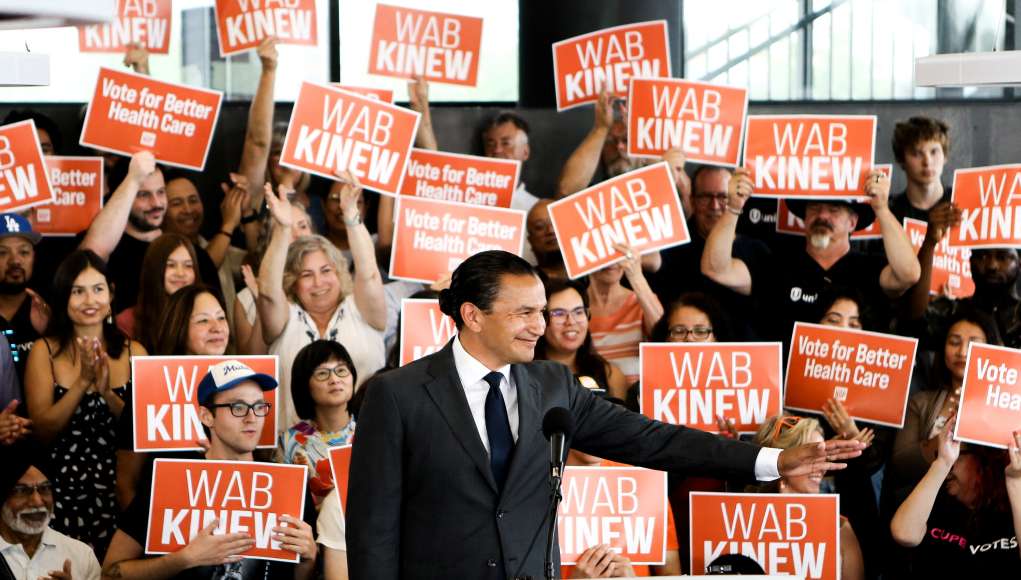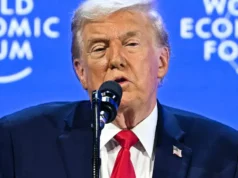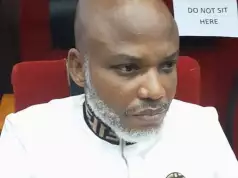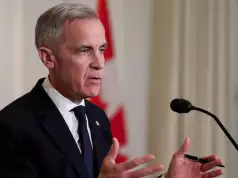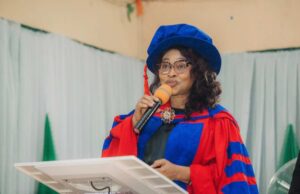Canada’s province of Manitoba elected First Nations politician Wab Kinew as its leader on Tuesday, making him the first Indigenous person voted in to head a provincial government.
Kinew, of the New Democratic Party, will take power with a majority government.
“This is a great victory for all of us in Manitoba,” Kinew told a crowd of cheering supporters in provincial capital Winnipeg.
“I know a lot of people in the big cities they looked down on us here in Manitoba. But look what little old Manitoba did tonight. Manitoba did something more progressive than any of those big cities ever did.”
Kinew, originally from the Ojibways of Onigaming First Nation in northern Ontario, is a former journalist and author.
“He’s a great communicator and knows how to navigate the media universe,” University of Winnipeg professor Felix Mathieu told AFP, adding that Kinew had “stood out for his political ease” in a televised debate, where he had “unquestionably” emerged victorious.
Canada recognizes three groups of Indigenous peoples: First Nations, Inuit and Metis.
About 18 percent of Manitoba’s population is Indigenous, and the province was led by a Metis premier in the late 1800s.
The country’s First Nations people gained the right to vote in federal elections in 1960.
The Assembly of Manitoba Chiefs hailed Kinew’s win as “a powerful affirmation of increased inclusivity and First Nations’ participation and representation within Manitoba’s political landscape.”
In recent years, Canada’s treatment of its Indigenous peoples has come under scrutiny. The discovery of the graves of Indigenous children in 2021 prompted rebukes from the Catholic Church and the government.
Between the late 19th century and the mid-1990s, about 150,000 aboriginal children were forced into 139 residential schools across the country, where they were cut off from their families, language and culture.

